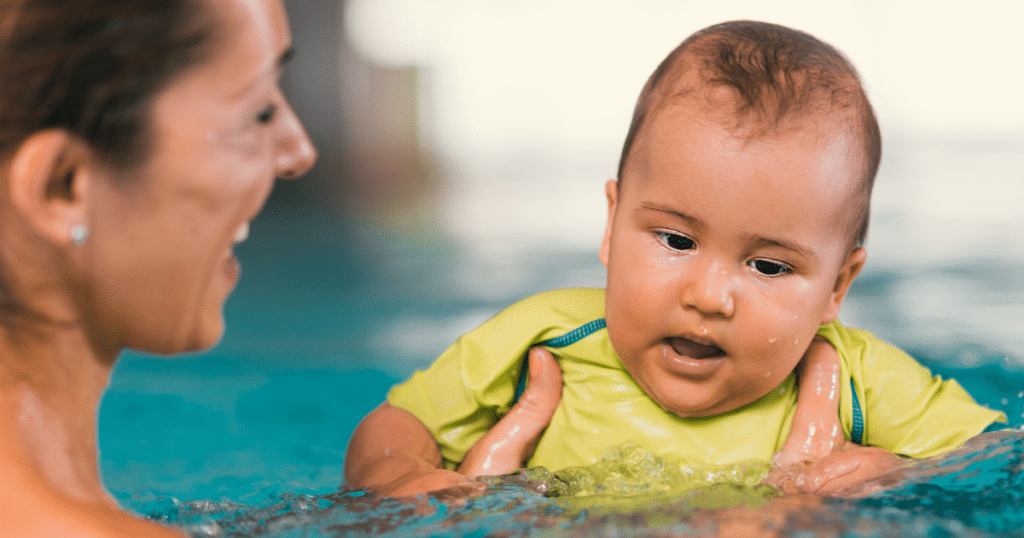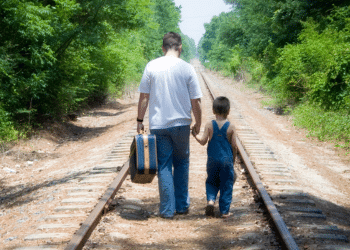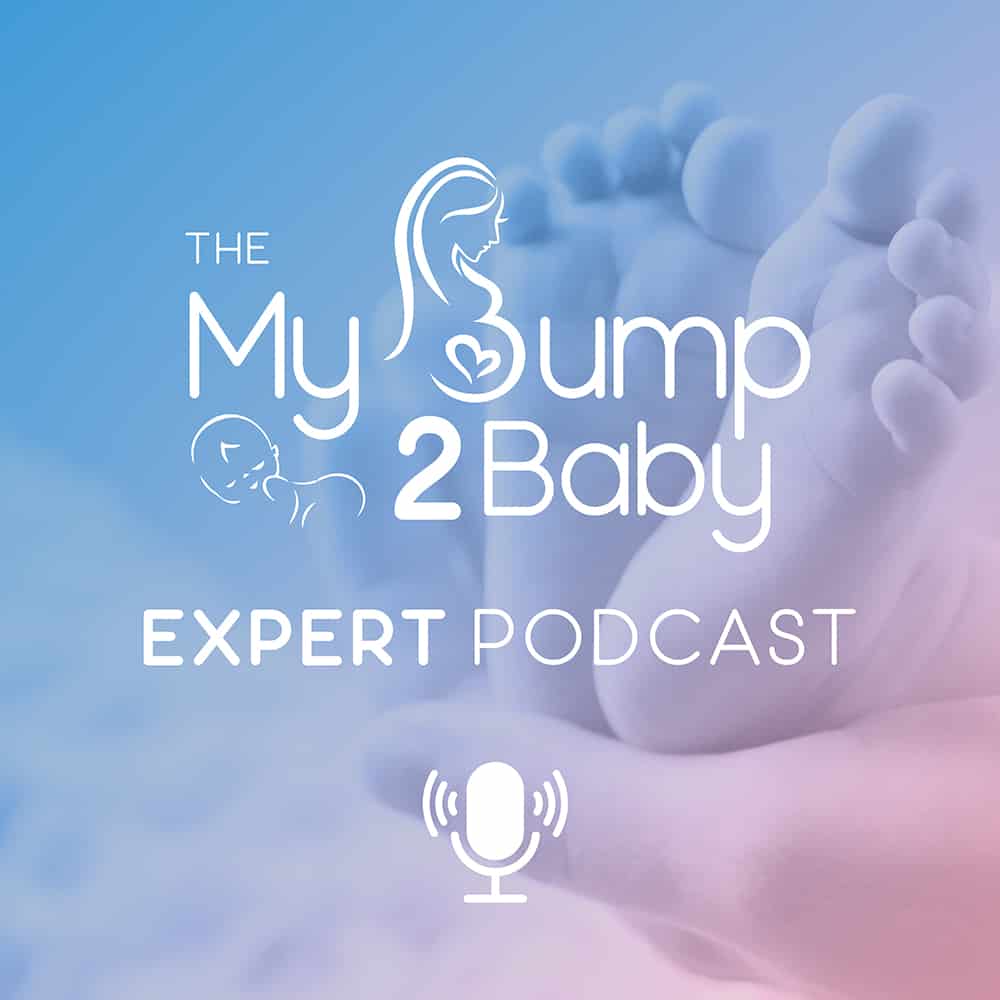- Interview with Turtle Tots
Today we welcome on to the MyBump2Baby expert podcast Joanna Wood, head of aquatics for Turtle Tots HQ. In this episode Joanna talks about the franchise opportunities available and shares some tips on finding the right baby swimming lessons for you and your baby as well as some tip tips to help your swimming lessons run as smoothly as possible.
To find your nearest baby swimming classes visit
https://www.mybump2baby.com/pregnancy-baby-toddler-directory/baby-swimming/
To get in touch with Turtle tots directly visit
Website: https://www.turtletots.com
Social links:
FB: https://www.facebook.com/TurtleTotsUK
Tik Tok: @turtletotsofficial
Instagram: turtletotsswim
[00:00:00] Carla: We are Google’s number one baby and toddler directory. We cover everything from pregnancy to preschool and we are home to over 8, 000 business listings. Join over 160, 000 parents using our website each month and you can find your local groups, classes, services and support in your local area.
[00:00:37] Carla: Hello and welcome to My Bump 2 Baby Expert podcast where we bring experts from all over the UK to answer your questions on everything pregnancy to preschool.
[00:01:00] Carla: Today I am joined by Joanna Wood the head of aquatics for Turtle Tots HQ and today we’re going to be sharing more information about baby swimming and also the franchise opportunities that Turtle Tots has available. I hope you enjoy this episode
[00:01:23] Carla: Hello everybody and welcome to My Bump 2 Baby’s Expert Podcast. Today we are joined by the lovely Joanna Wood, the Head of Aquatics for Turtle Tots HQ. Hi Joanna, how are you?
[00:01:36] Joanna: Hello Carla, I’m very well thank you. It’s lovely to be here.
[00:01:39] Carla: Oh, it’s lovely to have you on here. We are really passionate about parents taking their little ones to baby swimming lessons, so it’s really, really nice to have you on. Can you tell us a little bit about Turtle tots?
[00:01:51] Joanna: Yes. Uh, yes, so Turtle Tots is a baby and toddler specialist swim school. Um, we’re a franchise company, so we have, um, classes running the, you know, the whole of the UK and in Ireland. We’ve been running for about 12 years, and I can always remember that easily because Turtle Tots is the same age as my daughter, my, my youngest daughter. Um, and that’s, uh, I, I started with Turtle Tots as a customer with my tiny baby, uh, 12 years ago. Um, right at the very start of Turtle Tots being a, being a thing.
[00:02:26] Carla: Wow. Oh, wow. Gosh. So you’ve been there a long time.
[00:02:29] Joanna: Yeah. And I started as a customer and then I very quickly realised that the, I, I remember the feeling I had when I walked into my first lesson and I remember thinking, I can’t believe that somebody gets to do this for a job.
[00:02:44] Joanna: I was on maternity leave at the time, and I, uh, I have a teaching background, so I, I was a secondary school teacher, which is a wonderful job and I loved it, but it’s pretty high stress. And I was considering whether or not I wanted to go back to school teaching after my maternity leave. Um, and long story short, I did, but only for a very brief period of time.
[00:03:03] Joanna: And then I, um, um, because I spent most of my maternity leave setting up my own franchise. And I was, I was one of the first franchisees for Turtle Tots. Um, I live in Bristol. Which is where Turtle Tots HQ is and it was a case of just being in the right place at the right time and seeing an opportunity and grabbing it and then, and then I’m here sort of 12 years later in my current role where I, I work for head office and I, um, manage all the training and CPD for our fabulous team of teachers, um, and I couldn’t have chosen a better career. I absolutely love it.
[00:03:40] Carla: Oh, it’s so nice to hear that because I, I actually launched My Bump 2 Baby during maternity leave. And I think that tends to be a time when a lot of moms kind of, you know, have a look at and think, hold on, actually, do I really want to do that job? Or is it time to kind of look at something else?
[00:03:58] Carla: And I think when you become a mom, you know yourself a little bit more because you think, right, okay, what, what do I actually want now? I’ve got this little bundle of joy. Do I want to work full time nine to five, or do I want something a bit more flexible or something that can work around me? So it’s amazing the amount of mums that I speak to that set up businesses around that time of becoming a new parent is, is so good.
[00:04:22] Carla: So, so can you tell us a little bit about the franchise opportunities? Um, because I think that’s something that a lot of moms may be interested in.
[00:04:30] Joanna: Yeah, well, we’re, we’re quite a mature franchise business now. Um, as I said, we’ve been around for 12 years and, uh, we’re well established in lots of areas of the country, but there are still franchise opportunities.
[00:04:41] Joanna: So, you know, and it is almost all our franchisees and teachers, have been customers at some point. So people come into it with this real passion for, for the business. Um, so yeah, I’d say to anyone who’s listening, who, you know, might be considering like you and I have done, you know, whether or not they want to return to their, their current, um, employment, you know, to, to have a, to contact Turtle Tots limited and find out what franchises are available.
[00:05:09] Joanna: Um, and you know, like I say, there are still areas of the country that aren’t covered. Um, and we’d love to, yeah, we’d love to talk to people.
[00:05:16] Carla: That sounds great. It sounds really interesting that and and when you are a franchise member, franchisee, if you like, um, is it necessary that you get in the pool each time or do you have people that manage their own kind of staff and things like that?
[00:05:32] Joanna: I think it really depends. Some franchisees are sole traders and it’s just them and their business and they do all the teaching. Um, and they have quite, they have a, you know, quite a small business and they do everything. All the admin, all the teaching, all the marketing. And then there are other franchisees who have much bigger businesses and they have a team of teachers.
[00:05:51] Joanna: And maybe they don’t do so much of the teaching anymore. They might cover now and again, but actually they don’t teach because they’re managing the business. And then you’ve got lots of people in between, so there’ll be a franchisee who just has one teacher and you know, so it’s when I ran Bristol, I started on my own and then after five years of running the business, I had a team of 10 teachers and I wasn’t doing so much of the teaching myself anymore.
[00:06:15] Joanna: It really depends on what you, what you want to do with it. That’s the beauty of a franchise, I guess, is that you can mold it to, uh, the way you want it. And, and one of the real advantages of Turtle Tots as a franchisor is that, you know, we offer quite a lot of flexibility, um, like that.
[00:06:32] Carla: That’s great. Yeah, because I mean, even someone with a bit of a marketing background or an admin background, it might not be, you know, someone that wants to kind of get in the pool straight away. Or they might want to, but the bigger picture for them is they love the admin side of it. That could be the area that they could end up working in, isn’t it? They’ve got this business. Obviously working already because you guys are all over the place and, um, yeah, that, that’s amazing. So, so if someone wanted to find out a little bit more about the franchise opportunities, who is it they’d need to speak to?
[00:07:06] Joanna: If they went on to the Turtle Tots website.
[00:07:09] Carla: I will, I will put the link underneath this podcast, so they’ll be able to click straight through.
[00:07:14] Joanna: Thank you so much. And there will be a, there will be a link on there where, that you can click on that says, talk to us if you’re interested in becoming a franchisee.
[00:07:21] Joanna: Um, the person who deals with our franchise inquiries is, um, called Caroline and she’s really lovely. She’s on holiday at the moment, but she will be back, um, soon and would love to talk to anyone who might be interested.
[00:07:33] Carla: That’s brilliant. And Joanna, are you okay to answer some common questions that we get around baby swimming as well today?
[00:07:40] Joanna: Yes, I’d love to.
[00:07:41] Carla: Oh, perfect. So obviously there’s a lot of baby swim schools out there. How would you advise a parent to choose the best one for them?
[00:07:50] Joanna: Yeah, there are. It’s a really busy market, actually. And, um, you know, there are lots of really great swim schools and, um, Turtle Tots is definitely one of them.
[00:08:00] Joanna: Uh, what I would say, obviously, I think Turtle Tots is the best baby swim school, but I would say that, uh, what I would say is, um, obviously we know that parents will often choose based on a venue that is convenient for them and uh, a time that is convenient for them. We all know about choosing classes based around your baby’s nap times, but then nap time changes and you know, so obviously, you know, venue and time are really important.
[00:08:26] Joanna: But I would say more important than that is the actual ethos and the values of the swim school that you choose. So there’s been a bit of a revolution in baby swimming in during the time that I’ve been involved in it as an industry. So over the last 12 years, um, and it was brought about by, um, a change, a new qualification that the STA, so the STA is the Swimming Teachers Association and Turtle Tots, we do all our training with the STA.
[00:08:52] Joanna: Uh, and they brought in a new qualification. I think it must be like six or seven years ago now. called the Baby in Preschool Diploma, and it was aimed at existing teachers who were already qualified, already working, with an idea of kind of really retraining them to think about baby swimming in a different way.
[00:09:11] Joanna: So prior to, to that diploma being launched, a lot of baby swim schools were, were, I think everyone’s sort of heard of the baby dunking, you know, putting babies underwater and um, you know, you get those amazing photos which look fantastic, but actually we moved from this sort of sense of conditioning babies to expect and cope with and you know certain things happening to them and we move rather than that rather than this conditioning approach we move towards um a consent based and a consent based approach and really focusing on communication and respect for babies autonomy and for their choices and so rather than things just being done to babies, we move from from that place to a place where it was a partnership and we’re working together with babies are incredible communicators.
[00:10:06] Joanna: And that’s one of the things that I’ve learned so much about in my time in my current role, because I’ve done a lot of training with various different agencies about baby communication and just how much babies are able to tell us long before they can talk, um, if you’re looking and if you’re trained to know what to look for.
[00:10:24] Joanna: So that’s something I’d say that people should be looking out for is, is the, is the swim school talking, shouting really from the rooftops about an approach that takes into account babies, um, consent, autonomy, communication. If they’re not, then they might be sort of teaching in a more sort of old school way where, you know, we can get babies used to things happening to them.
[00:10:45] Joanna: If we put babies underwater a lot, they’ll get used to it. Or they won’t. Sometimes they don’t. Sometimes they really hate it. So what we do is instead of that sort of approach, we work with what’s called elective, an elective approach and a child centred approach. So everything is thought about from the, the position of the experience of the child.
[00:11:04] Joanna: How does this activity feel if you’re the baby that is, you know, experiencing it. And so much of that is about focusing on what babies are telling us. So all of our teachers are trained in how to understand and interpret and take part in baby communication. And often That can be really subtle, you know, some of the signs and signals that babies give to say that they’re either happy or unhappy with an activity can be quite small until, you know, unless if, unless if we keep missing them they become bigger and bigger and bigger until eventually you might get a baby that doesn’t want to get in the swimming pool at all because they’ve had things happen to them in a swimming pool that they haven’t enjoyed.
[00:11:48] Carla: That’s great advice. Yeah, I mean, that’s it. It’s just about parents understanding because you do hear, don’t you, of these stories and it’s just making sure that parents are happy with the type of class that they’re going to be going to and I think you’ve really helped their kind of understanding, especially, I mean, with the communication side of it. It’s amazing, really, like how babies can respond like that. I mean, I never knew that.
[00:12:12] Joanna: No, I did. I, one of the things, one of my, I mean, it’s not a huge regret, but something I wish is that I’ve had three children and my, my youngest is 12. My eldest is 30 and has recently made me a grandma actually. Um, but I really wish I’d known all of this before, you know, when I had my babies, but we, it’s a lot of it is whilst not super new.
[00:12:33] Joanna: It’s only in the last sort of decade or so that we really understood just how. incredible babies are into, you know, it’s the last two decades, really developmental psychology has been really studying baby communication and understanding just how much they’re capable of. And so that, that knowledge and that research is filtering through to the, to the general public.
[00:12:54] Joanna: Um, and you know, people know so much more now and so much more information is available. So yeah, that’s what I think that’s the main thing I’d say is choose a swim school that Um, is has a baby centred approach that focuses on they’re talking about things like respect for baby’s choices consent based swimming communication focus and avoiding anything like baby dunking or drown proofing and that’s I’m you know in inverted commas.
[00:13:18] Joanna: Um is a technique that is very popular in not, thankfully, not so much in this country, but in the US, um, it is more and in Australia. And it’s a very harsh kind of method of teaching babies to self rescue or babies or young children to self rescue if they were to fall into water. And it can be quite sort of, you know, I think there’s a clever marketing, uh, job that goes along with that.
[00:13:45] Joanna: So parents can think, oh yeah, that sounds really good. I must teach my baby, uh, how to save themselves. But actually the process they go through is pretty grim and, um, causes quite a lot of, um, you know, trauma I’d say to, to small babies. So avoid it, avoiding that, avoiding dunking, avoiding drown proofing.
[00:14:04] Carla: Right. Okay. That, that’s great. That’s great information there. So, obviously you’ve touched on the communication, uh, being a benefit, um, for swimming, but there are other benefits of baby swimming, aren’t they? Would you mind sharing a little bit more about those?
[00:14:18] Joanna: Yeah. I, I love talking about the benefits of baby swimming because there are so many.
[00:14:23] Joanna: Um, I mean, I think, you know, obviously your listeners will be aware that, you know, there are, there are loads of different activities out there that you can, that you can do with your baby and all of them offer lovely benefits. But I think swimming just literally encompasses everything, you know, it’s such a wonderful bonding opportunity for, for you and your little one.
[00:14:46] Joanna: I think something about being in the water, it’s quite a magical environment and it creates a vulnerability I suppose, you know, in, in both of you that allows for this real bonding opportunity and sometimes that’s one of the best bits about being a baby swimming teacher is, is watching parents and babies just kind of gazing into each other’s eyes and having these really special moments and again, you know, there’s no distractions, you know, there’s no mobile phones, there’s no, it’s just you and your baby in this, having this lovely experience together. There’s lots of physical benefits of, obviously, you know, in terms of, um, and swimming allows a huge amount of freedom of movement. And, um, one of the things, again, that I’ve, I’ve learned in, in my current role is just how important movement is for baby’s brain development.
[00:15:33] Joanna: And so anything that, that encourages and allows babies to move really freely, um, is really great for their physical development, for their muscle strength, muscle symmetry. uh, you know, for the development of their balance and their posture, but also their brains, you know, like their, their, their neural connections that are forming as a result of the, of the movement and the interactions that they’re having, um, in the water.
[00:15:58] Joanna: It’s also really crucial for safety, I’d say, um, whilst we don’t ever do anything that would be like drown proofing that I’ve mentioned, uh, we do teach safety skills right from the start. So, Until a child can swim independently there, you know, they need to be obviously completely supervised anytime they’re in or near water.
[00:16:21] Joanna: But there are certain skills that we can teach little ones that can help them to be safer. Um, you know, were they ever. you know, touch wood, it never happens, but were they ever to fall into water, we teach them, there’s a safety drill that we teach, uh, which means that as soon as a child goes into the water, the first thing they do is they turn around and they look for something to hold on to.
[00:16:43] Joanna: Um, also, just by being comfortable in the water, being comfortable with water on your face, being comfortable going underneath the water. All of those things mean that your child is much less likely to panic were they ever to fall into water. So those two things, that kind of turning around and holding onto the side and then, you know, being comfortable in the water are the two most important things that you can teach your little one alongside learning to swim, obviously.
[00:17:11] Joanna: Um, and one of the… Wonderful things about baby swimming and starting baby swimming is that your child will be swimming independently long before children who don’t start swimming until maybe they start school, you know, so your child will be will be swimming by the time they start school if you if you start baby swimming and continue it through throughout their toddler years.
[00:17:33] Carla: It’s a, it’s a lovely thing to do with your little baby as well, especially during maternity leave, I think, because it is so easy. I mean, I’ve just, I’ve just come off maternity leave really with my little one, but it’s so easy to like be scrolling on social media and wasting time. Doing household tasks and things. And you don’t get that maternity leave back, do you? So I think swimming is a lovely thing to do with your little one. And like you said, it means, you know, it’s good bonding time. Just the two of you in a pool where there’s no distractions and it’s lovely.
[00:18:06] Joanna: It really is. And lots of our parents actually come to us because they are nervous of the water themselves and they don’t want that for their child.
[00:18:15] Joanna: Um, so maybe they didn’t have a great experience of swimming lessons when they were at school. school or maybe they’ve had something happen to them that means that they’re, you know, that they’re nervous of the water, or maybe they’re just not very strong swimmers and they want, they want something different for their child.
[00:18:29] Joanna: So that’s a really big motivator for a lot of parents who come to us.
[00:18:35] Carla: Yeah, that, that makes sense. Really. I mean, my mum, that was one thing with my mother, actually, she can’t swim my mum. And that was one thing why we started so young, me and my brother, because she really was like, no, I definitely need these, these to swim because there’s certain things, especially as you get older as well, you know, when you go on holiday and things like that, your children will want to swim with other kids. And, you know, um, it just opens a lot of, a lot of doors. Doesn’t it really.
[00:19:02] Joanna: It really does.
[00:19:04] Carla: In terms of starting swimming lessons with your baby? When is actually the best time to start?
[00:19:10] Joanna: Well. We always say, you know, when you’re ready, obviously, don’t be thinking that you have to rush out before you feel ready. And when, when one person feels ready is, is very different to somebody else. We recommend that babies, you know, when we’re not wanting babies to start when they’re kind of a week old, you know, or to, uh, so some swim schools would say that that would be the best time, but I would say the best time, the best place for a baby at a few weeks old or, you know, is at home.
[00:19:36] Joanna: And if you want to have a water experience. experience than, you know, bathing or having a bath together, but once babies are a little bit older, really, you know, as soon as you feel ready, um, now some people, I used to get asked quite a lot. It’s like, Oh, my baby’s six months old. Is it too late to start baby swimming?
[00:19:52] Joanna: And the answer is no, it’s, it’s never too late to start swimming. And if you haven’t started swimming with your baby when they are little, then this best place to start is just as soon as you can, because the earlier you start. swimming, the more likely your child is to kind of accept it as a as a normal part of, you know, their, their lives.
[00:20:14] Joanna: So obviously the longer it goes without, the longer you go on without swimming, the more likely it is that they might be a bit nervous when they start. But you know, if that’s your, if that’s the case, if your baby’s 18 months old, or you’ve got a toddler, you know, then that’s, it’s fine if they’re nervous.
[00:20:30] Joanna: We, we are very trained to work with nervous children to, again, respecting and understanding their communication to help them get over that. But, if, like, personally, I would say between six and eight weeks is a really ideal time to start, if you want to start early. Some people don’t, and if you don’t, that’s absolutely fine.
[00:20:49] Joanna: Come along and join us a bit later. you know, six months. Um, and if you don’t want to, then, you know, then again, you know, start, start when you’re ready, I think is the answer.
[00:20:59] Carla: That’s great. And what qualifications do swimming teachers need to have to teach babies and toddlers swimming?
[00:21:06] Joanna: Well, that’s a really interesting question, actually, because, um, some, you don’t actually legally have to have a specialist baby and preschool qualification in order to teach baby classes.
[00:21:20] Joanna: So some places will have swimming teachers who are trained to teach swimming and they have that whole skill set that is basically helping to teach people to teach, to learn the swim strokes, you know, breaststroke, butterfly, front crawl, etc. Um, but actually teaching. teaching babies and well and adults because our classes are adult and child, um, as you know, the adult is in the pool as well.
[00:21:46] Joanna: And actually it’s a very different skill set to, uh, to a swimming teacher who is, is technique based and stroke based. So I would say another thing when choosing a swim school is make sure that your teacher is a specialist baby and preschool teacher. Sometimes it’s called adult and child. Um, but yeah, you are looking for, you want that specialism, you want somebody who understands that it’s kind of, it’s different teaching baby swimming.
[00:22:12] Joanna: Swim teaching from beginners upwards, you know, from, from the time that children are sort of four right up until competitive and club swimming. is quite technical, whereas baby swimming is more emotional and social and communication based, and the technical stuff comes in a bit later on. Now, um, at Turtle Tots, all our teachers are qualified swim teachers, so they know all about the end journey, the technical side of things, but they’re also specialist baby and preschool teachers, and they undergo, um, in pretty intensive training with turtletops as well, to really kind of make sure that that, that, um, that specialism is, is embedded.
[00:22:53] Carla: That’s reassuring. Um, so, so when it comes to the pool venue, what should a parent be looking out for?
[00:23:01] Joanna: I think the answer again is probably it depends. Um, you know, lots of people think that they will choose the most, the closest venue to them because, you know, that, that’s, uh, and then your baby comes along and you realise that in fact you’ll drive halfway across town in order to find a, a time that fits with your baby’s nap times.
[00:23:19] Carla: Um, yeah, that is true.
[00:23:22] Joanna: And obviously, every family has different needs, you know. Some people might need to be able to park very close to the venue. Some people might not mind parking in a multi storey and walking, you know. So, baby swim school, swim lessons happen in all sorts of different venues.
[00:23:37] Joanna: There’s school pools, hotel pools, there’s gyms, private pools. So, they really vary. So, I think, you know, making sure that the venue kind of meets your needs. Sometimes Um, it can be things like how, how busy is the venue, you know, if you’ve got a very sensitive baby who doesn’t like too much noise or, or things going on, then it might be that you want to choose a smaller, more intimate venue, um, that is quieter and calmer.
[00:24:06] Joanna: So really, I think, yeah, it depends. And maybe, you know, when you speak to your swim school provider, just find out a little bit about their different venues. Uh, water temperature is obviously important, really important for baby swimming. Um, and if you’re starting with your little ones when they’re under three months old, you really, the water temperature is super important and it really should be 32 degrees or higher.
[00:24:30] Joanna: So it should feel like getting into a, you know, a sort of a cool bath. Swim, some swim school operators are lucky enough to work in hydrotherapy pools and they’re often heated to a higher temperature and they, they’re often much smaller as well. So when I talk about different sort of venues feeling quite different, you know, a small hydrotherapy pool in a small building can feel very different to a big echoey 25 meter school pool, you know, with something else going on at the other end.
[00:24:56] Joanna: So I think, you know, those things will all You’ll know what your special, what your needs are and the specific needs of your baby. Um, once babies are over three months old that they can cope with temperate, they get better at regulate self regulating their body temperature and they can go into cooler water.
[00:25:14] Joanna: Obviously with the energy crisis and energy prices going up so much, um, a lot of poor operators have reduced temperatures a little bit. And so if you are going into a slightly cooler pool, it’s a really good idea to invest in a little baby warmer or wetsuit. Um, so most, we, we have a range of those that we sell to customers.
[00:25:38] Joanna: So you can buy those, um, through, through the individual franchises, but they make a really big difference. So that if you’re in water that is a little bit cooler, your little one’s not going to get cold and shivery.
[00:25:50] Carla: That’s great. Yeah, they’re really good tips, those. Um, have you got some top tips for baby swimming lessons, just to make sure it goes as smoothly as possible? Because that’s what we want as parents, isn’t it?
[00:26:04] Joanna: Yeah, we really do. And I think the first thing is kind of have realistic expectations. Probably the first couple of lessons might not fit, might feel a bit, uh, a bit stressful and overwhelming because you are, it’s new. You, you know, you’re going to the venue for the first time.
[00:26:19] Joanna: You haven’t got into a sort of a routine with it yet. Um, but there are some things that you can do to make that a bit easier. I’d say leave in plenty of time. Give yourself lots of time to get. to the venue. Some venues, there are time limits and you can’t go in, you know, you have to wait until maybe 15 minutes before your class before you go in because the last class, the one that’s just got out might still be changing.
[00:26:41] Joanna: But if you arrive in plenty of time, you’ve got time to maybe sit in your car or sit in a waiting area, give your baby a feed, change their nappy, you know, do whatever you need to do in order so that you can arrive feeling calm as much as possible. Because I know that sometimes things, you know, things can change quickly with babies, can’t they?
[00:26:59] Joanna: And you might think you’d left later time, but then there’s a poonami just as you’re about to leave the door.
[00:27:03] Carla: Always the poonami. That always comes at the wrong time.
[00:27:07] Joanna: So I’d say give yourself plenty of time because rushing in at the last minute and changing quickly and then getting in, you know, that can all leave you feeling quite flustered and stressed.
[00:27:17] Joanna: And then obviously your baby’s going to pick up on that and they’re less likely to be relaxed and they’re then more likely to cry. And then, you know, the whole cycle of, of that. So yeah, lots of, give yourself lots of time. Make sure that you’re, uh, as much as possible try to relax yourself because babies, as I said, are these incredible communicators and they are, as well as communicating with us, they are also really good at picking up cues from their adults around them and they will pick up on, uh, you know, if there are non verbal signs of anxiety or stress, then babies will pick up on that and therefore they will feel less safe themselves and therefore they’re more likely to cry and be upset.
[00:27:56] Joanna: So giving yourself time to, you know, take some really big, nice, calming, deep breaths before you go in, particularly if you are a nervous parent around the water. Of course, you’re, you know, you’re going to feel those feelings, but just trying to do as much as you can to keep yourself nice and calm and relaxed, because then your baby will pick up on that.
[00:28:15] Joanna: Making sure that you are listening to your baby and meet their needs. So regard that your swim teacher, and you know, again, any good swim school will be telling you this, your swim school teacher, baby swimming teacher is there to suggest activities to, to facilitate things for you to do together in the pool, but the person that’s most important that you listen to is your baby and if you’re focusing on your baby They will tell you what they need and whether they like an activity or whether they don’t Whether they want to do something or whether they don’t and it’s really important that you listen and if they don’t want to do something that’s okay.
[00:28:52] Joanna: Let’s just watch or let’s just cuddle them and you know, or if they need a feed give them a feed If they need a dummy, give them their dummy. Whatever it is that they need in order to feel safe, and secure, and happy, and comfortable. Because all of the activities that happen in your baby swim lesson, they’re going to happen week after week after week, because repetition is such an important part of learning to swim.
[00:29:15] Joanna: So if your baby doesn’t want to take part one week, That’s okay. It’s fine. It’s far better that they are listened to and that they feel that trust and respect in the, in your relationship than it is that they, you know, that they do the thing. I don’t know, maybe it’s sit up on the big mat. If they don’t want to, they’ll tell you and, you know, make sure, so listen to your baby, meet their needs.
[00:29:37] Joanna: Some practical things, take three towels, so the towel that you first wrap your baby in when you get out of the water is going to get absolutely soaking because they’ll have their swim nappy on and it will soak them, soak into it. Um, so I’d say take three towels, one to wrap your baby in straight away and then another one each for you in the changing rooms.
[00:29:58] Joanna: I always found it easiest to get changed first. So I would put my baby in a hooded towel and lie them somewhere safe or put them somewhere safe. So sometimes there’ll be a travel cop maybe in the changing room, or sometimes you might be able to put them in a car seat. Um, but keep them Um, warm, wrapped up in a towel whilst you change yourself and then you’re not going to be shivering and dripping whilst you’re changing your baby, but they’re kept warm while, while they’re waiting for you.
[00:30:26] Carla: That’s great. Um, yeah. I wouldn’t think of that, but because I always do it the other way around and then, yeah, and she ends up soaked, so that actually makes a lot of sense.
[00:30:35] Joanna: Yeah, particularly once they’re mobile, because you get them dressed and you put them in dry clothes and then they start crawling around and the floor is wet and then they’re soaking.
[00:30:42] Carla: Yeah, yeah.
[00:30:44] Joanna: So yes, that’s what something I always find bring a snack for after swimming because the chances are they’ll be very hungry. Obviously, in the first six months, you know, if you whether you’re breast or bottle feeding, you know, they’re going to want to feed pretty quickly after swimming. But once they are eating solid foods. I would bring a snack for the change, for after the changing rooms. It’s not a good idea to eat snacks in the changing rooms because they end up getting, if you get breadsticks on the floor, they go all mushy and gross. But as soon as you get out of the changing rooms, they will be hungry because they work hard and you know, half an hour of swimming really does tire them out and make them hungry.
[00:31:18] Joanna: And that’s another kind of benefit, I guess, to baby swimming is that they’ll often have a really good sleep. Um, I’d be really hungry afterwards.
[00:31:25] Carla: Yeah. Yeah, that’s great. Gosh, you’ve given us some great things to think about there. I really appreciate you coming on Joanna. Thank you so much.
[00:31:35] Joanna: Thanks Carla. Thanks for having me.
[00:31:36] Carla: Oh, thank you. Can you just remind people how they can find you guys after this podcast? Sorry.
[00:31:42] Joanna: Yeah. So if you go to the Turtle Tots website, which is www. turtletots. com Um, and on there you will be able to put in your, if you’re looking for classes, you’ll be able to put in your postcode and that will bring up classes in your local area.
[00:31:58] Joanna: And if you put in your postcode and there aren’t any classes coming up, then that means that there’s probably a franchise opportunity near you. So if that’s something that you’re interested in, we would absolutely love to talk to you. Um.
[00:32:11] Carla: Yeah, that’s great. Well, we’ll put all the links at the bottom of this podcast anyway, so They can they can find out if there’s one local to them or like we said franchise opportunities as well So, thank you so much Joanna anyway, I really appreciate you coming on.
[00:32:27] Joanna: Thank you, Carla.
[00:32:29] Carla: Thank you.
[00:32:31] Carla: If you are interested in taking your little ones to swimming lessons head on over to www.mybump 2baby.com to find your nearest baby swimming provider. Thank you for listening to today’s my Bump 2 Baby Expert podcast. If there is a subject you would like more information about, please send your requests in to [email protected].
[00:33:00] Carla: My Bump 2 Baby is one of the UK’s leading parenting platforms. You can find local pregnancy to preschool groups, classes and lessons wherever you are in the UK. Not only that, but you can read our honest reviews on the latest products, days out and services that you as parents need to know about. We also work with trusted financial advisors.
[00:33:28] Carla: Family Law Solicitors and now Estate Agents too. If you would like to find your nearest trusted expert, head over to www. mybump2baby. com











